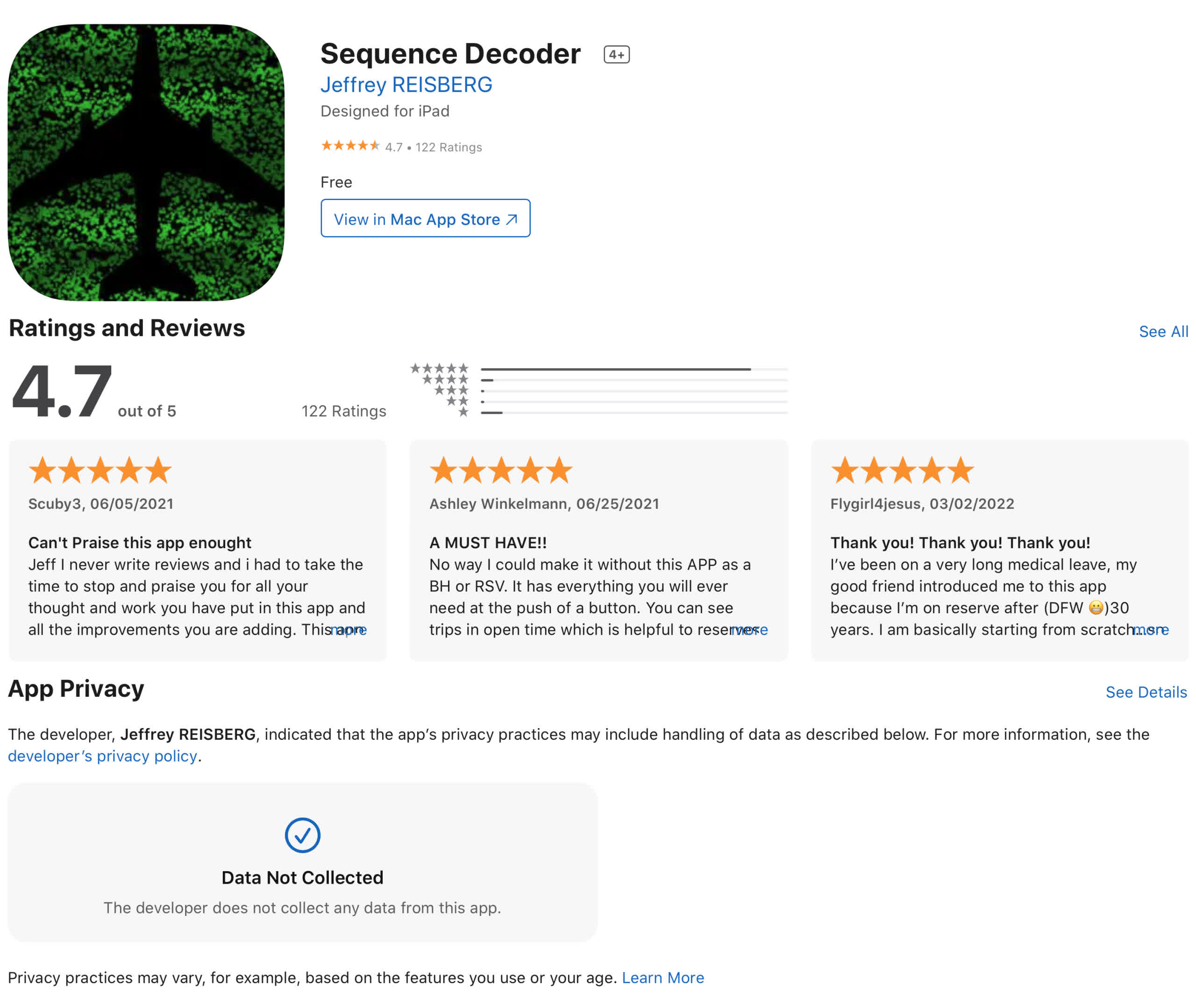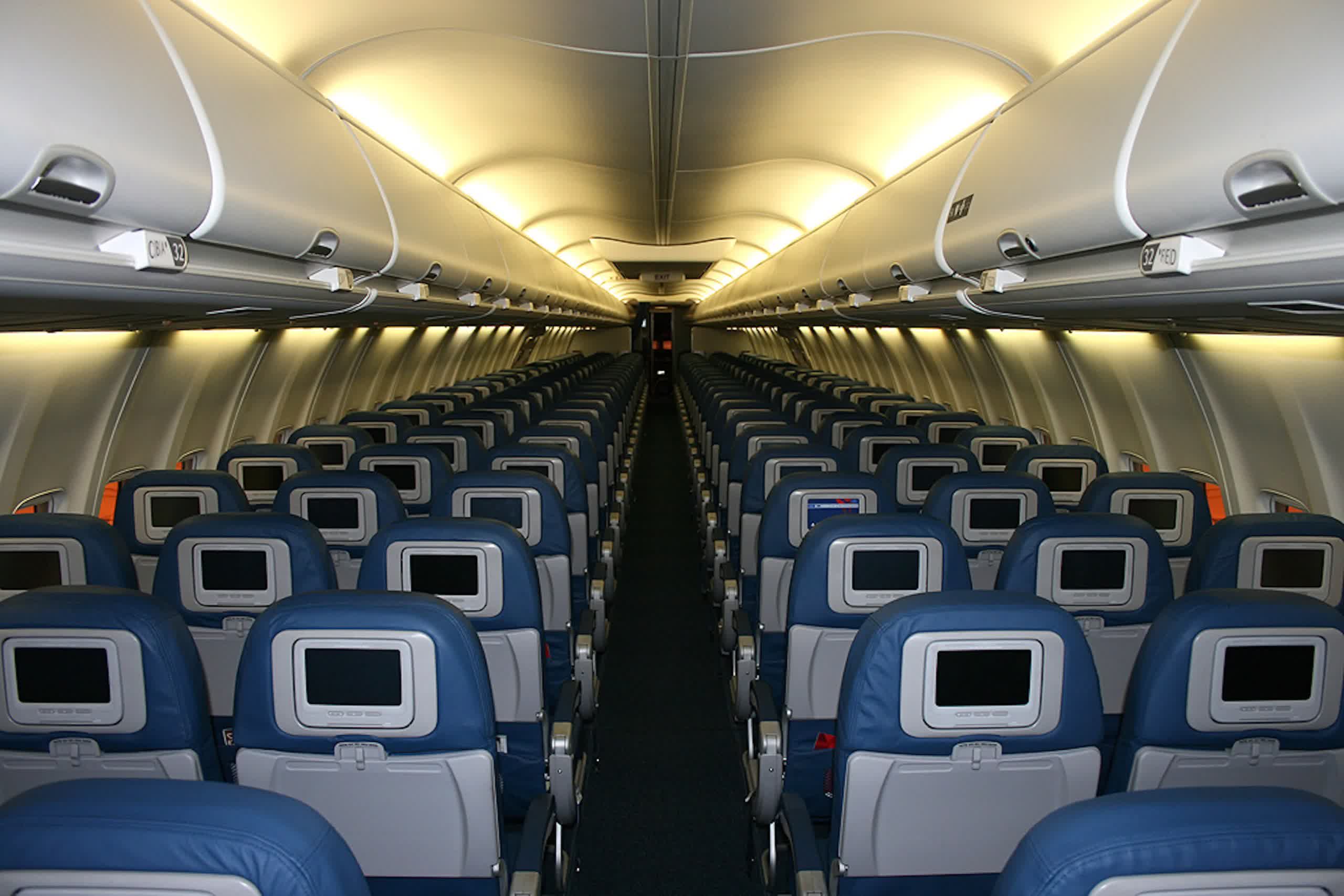In context: Off-hours might not accurately describe the ground time of flight attendants since much of it is spent planning their next flight. Help from the airlines they work for is less than efficient since there are no real-time updates on the numerous daily flight delays and roster schedules unless the attendant enjoys hanging out in the airport or monitoring an employee portal 24/7.
Enter an iPhone app called "Sequence Decoder." The software is available to anyone and can display past and future departure and arrival information in real time. However, it has even more value for flight attendants as it can furnish specific inflight info, calendars, crew chat, standby lists, and more. It also can show crew rosters for specific flights so that attendants can see which ones still need members and plan to fly with familiar coworkers.
One would think that airlines would embrace such a practical app for employees and a lot of them do. However, American Airlines (AA) is allegedly going to great lengths to block Sequence Decoder from gathering the information it needs to provide the company's employees with this helpful service.
In his blog Paddle Your Own Kanoo, international flight attendant Mateusz Maszczynski notes that the app has become a "must-have tool" for flight attendants. This necessity is especially true at AA because of its numerous reserve flight attendants. The fact it has an app for customers but not crew is somewhat ironic, but also not surprising since the consumer application is apparently not well designed.
Here's the American Airlines chat bot *in the American Airlines app* telling me to check in using the American Airlines app
--- B J. Witkin (@Itsjustbeej) October 17, 2022
Genius! Why didn't I think of that? pic.twitter.com/MOhvKTA8CI
American Airlines doesn't have an app to help employees manage their schedules and has allegedly turned down offers from Sequence Decoder developer Jeffrey Reisberg to collaborate on one. Instead, AA has deployed "sophisticated bot detection software" to keep Reisberg's app from scraping information from its public-facing websites.
For Sequence Decoder to function, it has to gather data from various AA webpages. It doesn't collect anything illegal. All the information is publicly available if you know where to look. However, the airline is actively trying to cripple the app with bot-detecting software.
"We've tried to get them to talk to us, find a way to peacefully coexist but they have refused all communications," Reisberg told app owners in an email. "At the end of the day, I don't think they understand why this service is important, and they don't care to know."
In other words, instead of allowing the app to do what it does or creating an equivalent to it, America Airlines has taken an all-too-common corporate stance that its employees are worth less than its publicly available data.
"You can gather all this data yourself and crunch the numbers manually, but we'll be damned if you can have an app that makes it easy for you," the airline is indirectly saying. It's something within its right to do, but it is terrible optics from a PR standpoint. The app's review section if full of five-star ratings and praise from flight attendants that use the app every day.
Fortunately, the bots have not entirely shut down users yet. Reisberg says he has found workarounds so far, but it's getting harder.
"We've found holes in the net and managed to survive, but the net is always getting better," he said. "Last week the net got us good again, I thought it could be the end."
Maszczynski said that he spoke to one anonymous AA attendant who said they had "never seen a company go out of their way to make life harder for their workers."

It's worth mentioning that Reisberg does not appear to be making any money from his application. Sequence Decoder is free from the Apple App Store, has no in-app transactions, and does not collect user data. So it's not even a case where someone uses AA's publicly available data for personal profit.
Sequence Decoder is not the only app of its kind out there. Other similar organizers work in much the same manner. Most airlines allow this software because they recognize its usefulness but don't have the time or resources to develop and maintain their own.
However, others are adversarial. Maszczynski relates that one unnamed airline created a copycat and then shut down access to third-party apps trying to provide the same service. At least, in that case, the airline recognized the need and provided similar functionality rather than leaving its attendants high and dry.
American Airlines has not commented on its alleged actions but is currently involved in a lawsuit with a similar website app that scrapes data to provide AAdvantage account holders an accessible portal to manage airline points and miles.
